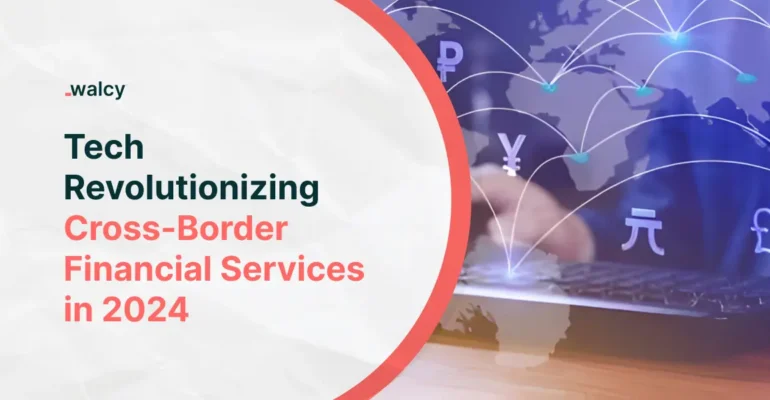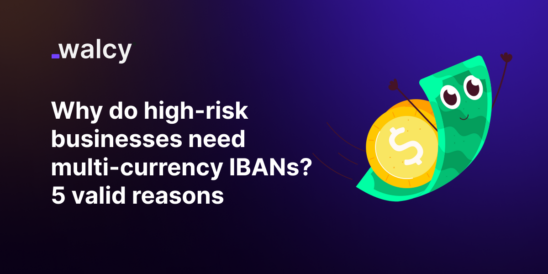Technology today holds huge promise in the revamping of financial services across borders. Technology increases, not only in efficiency from cross-border financial planning to investment management but also in some great new opportunities for both companies and individuals. Innovations at the forefront in blockchain technology, machine learning, and big data analysis ensure high transparency, speed, and security of international transactions. Moreover, the exponential growth of digital channels and FinTech solutions is democratizing access to cross-border finance and reducing the barriers to entry to financial markets faced by small and medium enterprises. The paper elaborates on how technological innovations fundamentally change the nature of cross-border financial services—including cross-border wealth management, trade finance, and export finance.
What are Cross-Border Financial Services?
Cross-border financial services are various financial activities involving transactions or investments across different countries. The services include financial planning, wealth management, investment management, trade finance, and export finance, among others. With the growing and developing markets across borders, more and more businesses and individuals are engaging in cross-border financial activities to expand operations by targeting new opportunities and diversifying respective portfolios. Technology has huge impacts along these lines by innovating and making new ways of managing wealth and growing it internationally.
The Role of Technology in Cross-Border Financial Planning
Technology has greatly enhanced cross-border financial planning by enabling easy access to, and analysis of information from, many countries. Advanced analytics and artificial intelligence used by financial planners offer even more accurate and personalized information as advice. Moreover, cloud technology ensures safe and real-time data sharing to enable financial professionals to access data right at their fingertips. In addition, mobile technology has enabled clients to manage their financial plans while on the move, hence enjoying the freedom to execute and take control over more investments. For instance:
- Data Aggregation:
It aggregates data out of the technology concerning the various financial institutions and markets, providing an overview of the client’s financial status across borders.
- Predictive Analytics:
AI-driven tools use data to review market trends and economic indicators to assist planners in forecasting financial conditions for the future so they can make informed decisions.
- Online Platforms:
Online platforms stand as better paperless modes of service provision and linking clients to financial advisors, perhaps at globally located addresses.
You shall Love: How Fintech is Transforming B2B Cross-Border Payments?
Enhancing Cross-Border Wealth Management
Cross-border wealth management refers to managing one’s assets and investments across various countries. Technology has innovated this area with much more efficient, secure, and accessible solutions for clients from all over the world. It provides an integration of big data analytics, giving a better perception of global market trends and behaviors of clients to the wealth manager to make effective decisions. In addition, digital identity verification has been integrated to smoothen the onboarding process, therefore helping clients access cross-border services much more seamlessly without having to file many forms.
- Automated investment solutions:
While facilitating further customization toward the goals of wealth management, robo-advisors, and automated investment platforms come up with a set of investment strategies oriented to each risk profile and goal.
- Blockchain Technology:
Blockchain enhances transparency and security across borders in transactions and reduces the risk of fraud. Moreover, it facilitates asset transfers to move assets efficiently and securely across borders.
- Global Investment Platforms:
Technology-enabled platforms that enable access to international markets for investors to diversify their portfolios in global assets to spread out risk and capture opportunities in several economies.
Transforming Cross-Border Investment Management
Technology will bring more agility, precision, and compliance into cross-border investment management.
- Real-time data availability:
Armed with real-time market data, investors can indeed act upon their decisions at the right time not limited by any time zone to perform in synchronization with market pulses and take up opportunities as they arise.
- Algorithmic Trading:
These sophisticated algorithms execute trades based on predefined criteria, thereby optimizing the investment strategies, and reducing manual intervention, by which one can achieve consistent performance across diverse markets.
- Cross-Border Compliance Tools:
This addresses and assists in the management of regulatory requirements and compliance issues across jurisdictions. Through technology, it eases investment procedures in full compliance with local and international regulations, mitigating legal and financial risks.
Revolutionizing Cross-Border Trade Finance
Cross-border trade finance allows international trade by providing financing solutions to exporters and importers. The area has graced quite a few innovations, mostly through technology, greatly enhancing efficiency, transparency, and security:
- Digital Trade Platforms:
Digital platforms like blockchain-based trade finance networks diminish paperwork and processing times associated with documentation and transaction processes. Generally, these platforms will facilitate faster and more secure trades of documents on trade and payments, thus minimizing delays and errors.
- Smart Contracts:
These self-executing contracts automate and enforce the predetermined conditions of the agreement that two transacting parties agree to, thereby minimizing the occurrence of disputes, in addition to ensuring timely payments. Smart contracts execute transactions automatically when predefined conditions are met by embedding terms and conditions into programmable code.
- Real-Time Tracking:
Advanced technology makes real-time shipment and transaction progress tracking possible, which enhances transparency, reducing the risks of cross-border trade. Advanced tracking systems facilitate parties to know the status of goods and financial transactions, working towards better management and mitigation of potential disruptions.
- Integrated Financial Services:
Trade finance solutions are integrated into technology, providing comprehensive means for the management of cross-border transactions, including currency exchange and tools for risk management. This assists in optimizing financial strategy and enables operations across borders.
Advancements in Cross-Border Export Finance
Export finance can help companies finance their international sales. With technology, this is becoming easier to manage and more secure, as mentioned – there are several benefits:
- Digital export financing platforms:
These are platforms that run finance for exports with easy, rapid access. These platforms include factoring or invoice discounting. It helps exporters raise funds within record time. Improved cash flow makes international transactions go smoothly.
- AI-Powered Risk Assessment:
AI tools use machine learning to assess credit risk along with the financial stability of buyers. As such, exporters can make decisions that are sensitive to the sensitivities of business. Thousands of data about financial histories and market circumstances can be analyzed by the AI to give very accurate risk profiles, hence reducing the probability of bad debts.
- Blockchain in Trade Finance:
Blockchain ensures a reduction in fraud and an enhancement of security in export transactions through a tamper-proof record of all trade documents. It ensures all parties access a single, unchangeable source of truth, thus building trust and transparency.
- Automated Compliance and Documentation:
Advanced systems automate documents for compliance, including letters of credit and certificates of origin, therefore reducing administrative burdens, minimizing the chances of errors, and speeding up the authorization of export transactions.
- Better Currency Management:
Technology-based platforms offer up-to-the-minute currency exchange and hedging solutions for exporters to be able to manage currency risks and optimize financial results in international markets. This is a feature that enables pricing and cost management accurately for cross-border trade.
Conclusion
Technology is dominating cross-border financial services through efficiency, security, and opportunity. The development in technology is changing the way companies and people do financial planning and wealth management, trade, and export finance across their borders. Such innovations can be harnessed to bring forth more efficient financial strategies, better investment outcomes, and innovation, which facilitates international transactions.
The next decade of technological evolution will surely bring even more changes to cross-border financial services by providing new tools and solutions for business and people around the world regarding the global financial landscape. Staying ahead of such trends will be incumbent upon those businesses and investors who want to use technology to remain competitive and on the path to long-term success. A more integrated, more transparent, and more powerful future in cross-border finance awaits us all, one that shall redefine how we engage with the global economy.
FAQs
- What are cross-border financial services?
The services entail transactions and investments across different countries, including financial planning, wealth management, trade finance, and export finance—all enhanced by technology for better efficiency and security.
- How does technology improve cross-border financial planning?
Technology offers real-time data, advanced analytics, and digital platforms, allowing for more accurate, personalized financial advice and flexible management of international finances.
- What role does technology play in cross-border wealth management?
Technology provides automated investment solutions, enhances security with blockchain, and enables access to global markets, leading to tailored strategies and diverse portfolios.
- How is technology transforming cross-border trade finance?
Digital platforms compress all the documentation, and smart contracts automate transactions, and real-time tracking, thereby bringing in a lot of transparency and reducing risks in trade finance.
- What are the benefits of technology in export finance?
Technology offers online financing platforms for quick access to funds, AI for assessing credit risk, and blockchain for secure transactions, making export finance more efficient and accessible.
- How can businesses stay ahead of technological trends in cross-border finance?
Businesses can be at the forefront by making a continuous effort to monitor emerging technologies, investing in cutting-edge financial tools, and adjusting their strategies as innovations become available to help create competitive advantages and operational efficiencies.
Know everything about the overseas payments.
Do follow us on Facebook and Linkedin, to stay connected with us.



